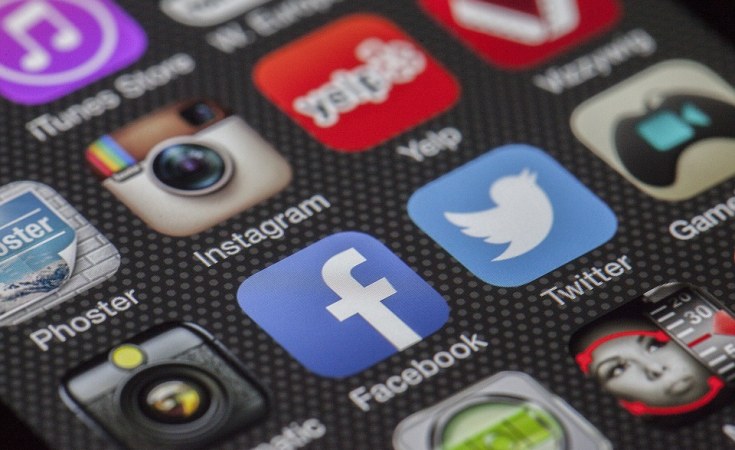Why have Chad's internet restrictions, which started amid anti-regime protests a year ago today, endured for so long?
A year ago today, on 28 March 2018, people across Chad went on their phones to check their Twitter, Facebook and WhatsApp messages. Like millions of people around the world, they were expecting messages from friends, family and partners. However, on trying to gain access to their accounts, they were greeted with an error message.
Some suspected a technical issue was to blame. Others linked the outage to the widespread protests which had recently broken out; this wouldn't have been the first time that internet restrictions had coincided with public demonstrations. No one, however, expected this to be the beginning of the longest ever social media blackout in Africa.
For an entire year now, families and friends have been disconnected, businesses have struggled to market themselves, and journalists have been restricted in their attempts to report on developments to the outside world. Furthermore, and perhaps most importantly, citizens have been undermined in their ability to organise demonstrations and criticise the regime.
According to a recent report by the policy centre CIPESA, only 6.5% of Chad's citizens have regular access to the internet. However, as the report explains: "African governments with democracy deficits, regardless of the number of their citizens that use the internet, recognise - and fear - the power of the internet in... empowering ordinary people to speak truth to power."
Under President Idriss Déby, however, Chad does not merely have a democratic deficit. The regime is democratically bankrupt. In power since 1990, the 66-year-old introduced constitutional changes last year that could enable him to remain in office until 2033 despite the opposition boycotting the process.
A common strategy
Restricting access to the internet in the face of popular social and political movements is becoming an increasingly common strategy in Africa. This is particularly true of authoritarian governments who, according to CIPESA, account for 77% of the blackouts across the continent over the past five years.
The first two months of 2019 certainly followed in this pattern as five repressive countries - Algeria, Zimbabwe, Gabon, the Democratic Republic of Congo, and Sudan - experienced shutdowns. Unlike in Chad, however, these blackouts were mostly short-lived.
In Zimbabwe, for example, the judiciary quickly ruled the move unconstitutional and ordered the government to restore access amid public unrest. In Gabon, internet access returned after an attempted coup was suppressed. In the DRC, localised restrictions were only imposed for a limited time around elections. In Algeria, disruptions that occurred during protests against the ailing President Bouteflika only lasted a number of hours. The only outlier was Sudan, where the shutdown lasted for 68 days amid anti-government protests.
There are several factors that affect the length of shutdowns, but one reason disruptions in Chad have been able to last an entire year is the relative lack of external pressure. According to Juliet N. Nanfuka of CIPESA, central African countries "tend to attract less regional or international attention in the face of government excesses, compared with East Africa or Southern Africa."
Julie Owono from Internet Without Borders echoes this observation and suggests that Western powers may be reluctant to criticise President Déby given their close security partnership with Chad in the fight against Islamist militants. As a recent African Arguments article noted, France has become so supportive of Chad's regime that it even acceded to Déby's recent request to conduct air strikes against political rebels.
Similar dynamics were seen in Cameroon, which restricted the internet in the Anglophone regions for 240 days across 2017 and 2018. The government in Yaoundé is also a key ally of the West, particularly in combating the Islamist militant group Boko Haram, and received relatively little international criticism regarding its digital rights abuses.
There is little new in Western governments shying away from criticising their allies despite human rights violations. However, as in other cases, the lack of condemnation appears to have emboldened Déby's regime.
Pressure from within and without
All this is not to say that there is a complete lack of attention regarding Chad. Along with efforts on the ground, some international bodies are also trying to ratchet up the pressure on the government. On 12 March 2019, AFEX sent a petition signed by 80 international organisations to members of the United Nations and Africa Union which called on Déby to resume normal access.
At the same time, some groups have been trying to support activists within Chad. Internet Without Borders, for instance, has been distributing Virtual Private Networks (VPNs) to help activists bypass the social media blackout. This technology has become an essential tool for activists during mass censorship campaigns. As Nanfuka has said, VPNs give activists "confidence to keep working for improved governance where, if they couldn't operate anonymously, they would either risk getting arrested or prosecuted".
As Chad's social media shutdown reaches its first anniversary, however, much more pressure will be needed to force President Déby's authoritarian government to restore full internet access. One year in, the government has shown few signs of backing down and - amid silence from its Western partners - continues to curb its citizens' ability to communicate with one another, voice their criticisms, and connect with the outside world.


